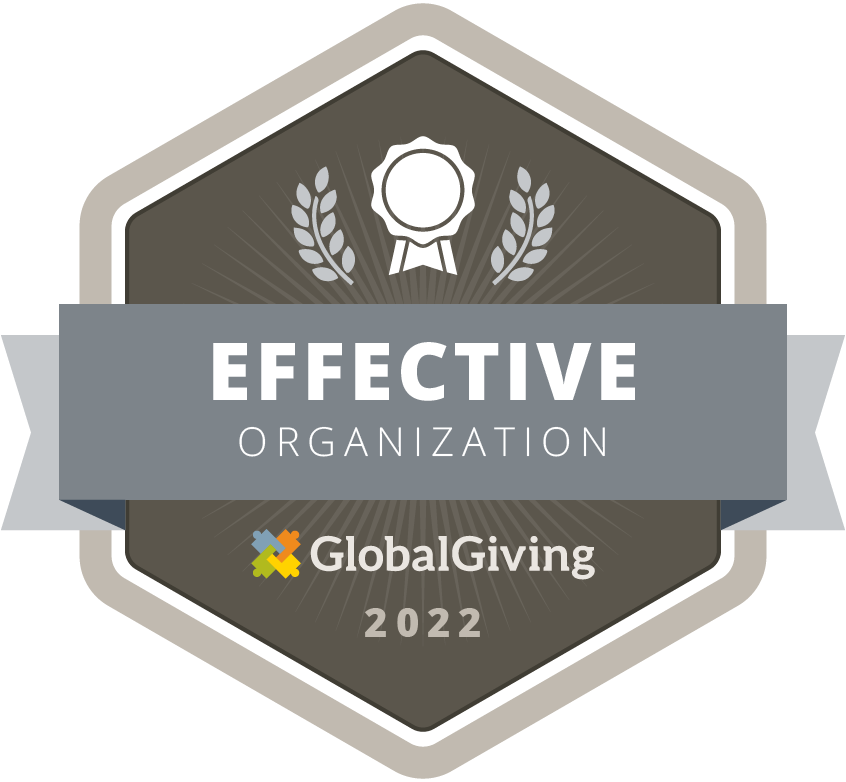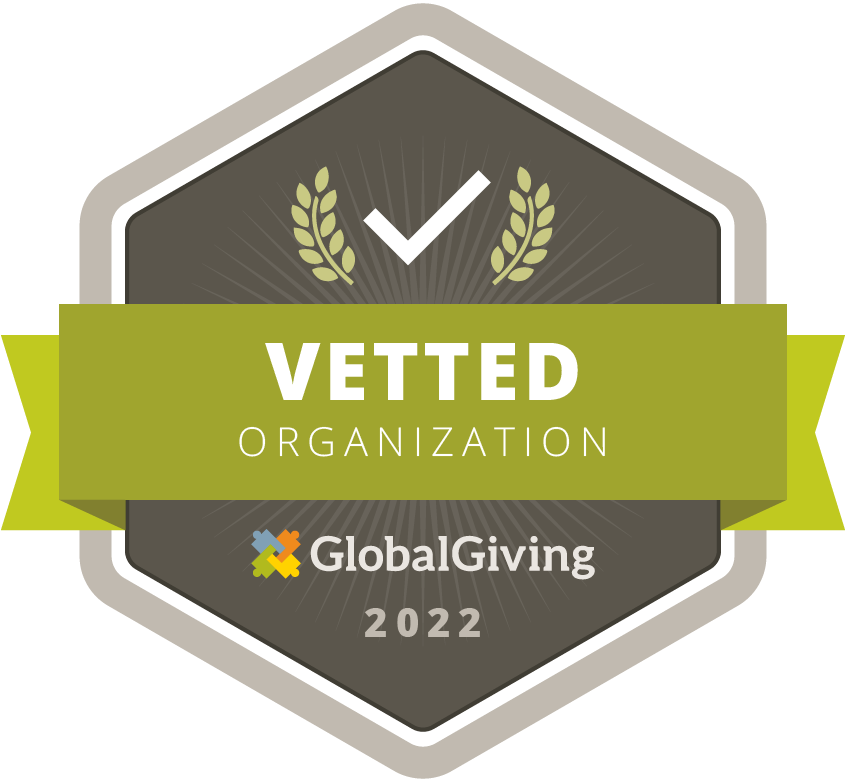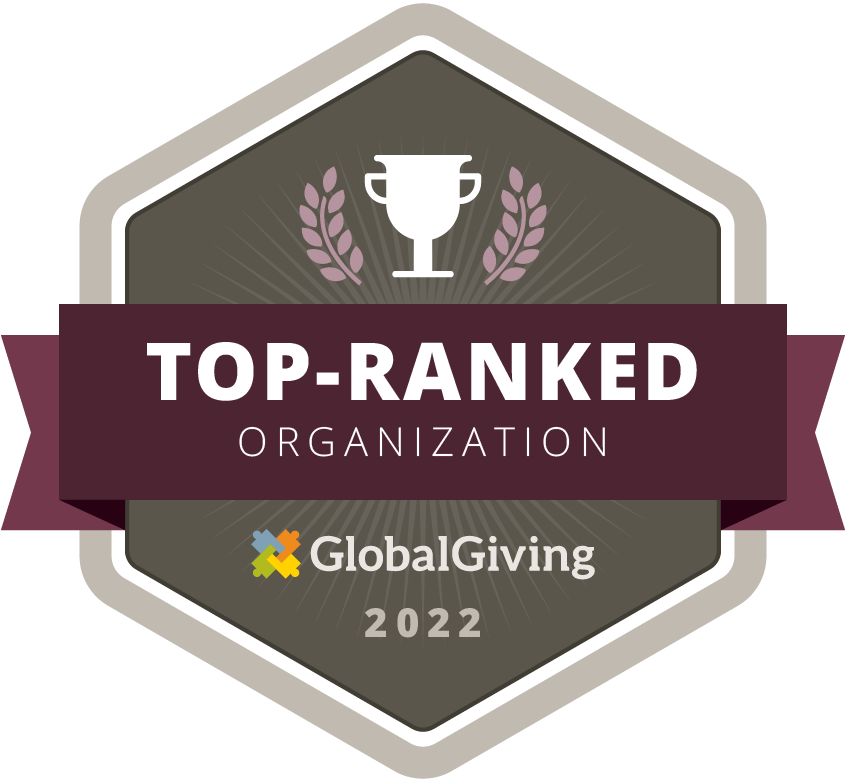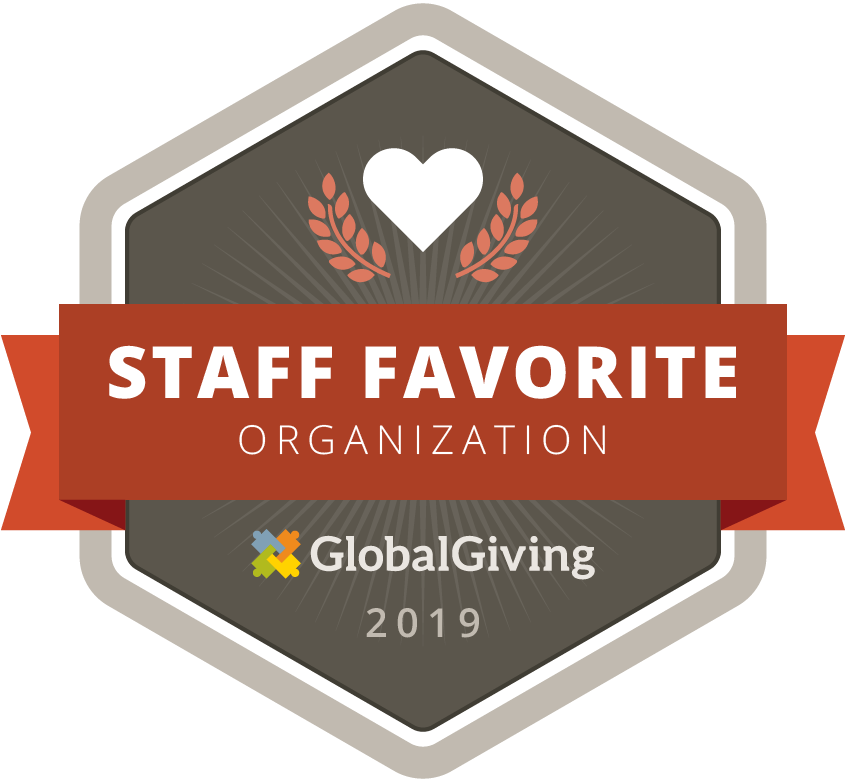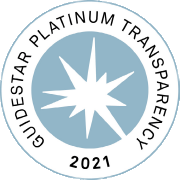What we do
Disaster Housing and Recovery
The Resilient Housing Initiative (RHI) was created in 2018 to help rebuild homes on St. John that were destroyed by Hurricanes Irma and Maria. It is now the longest running home rebuild program on the island, surpassing the existence of other federal and local assistance programs. Every home rebuilt through RHI is more disaster resistant and safer than ever thanks to the hard work of licensed Virgin Islands contractors and small businesses. To date, this program has rebuilt 36 homes across St. John.
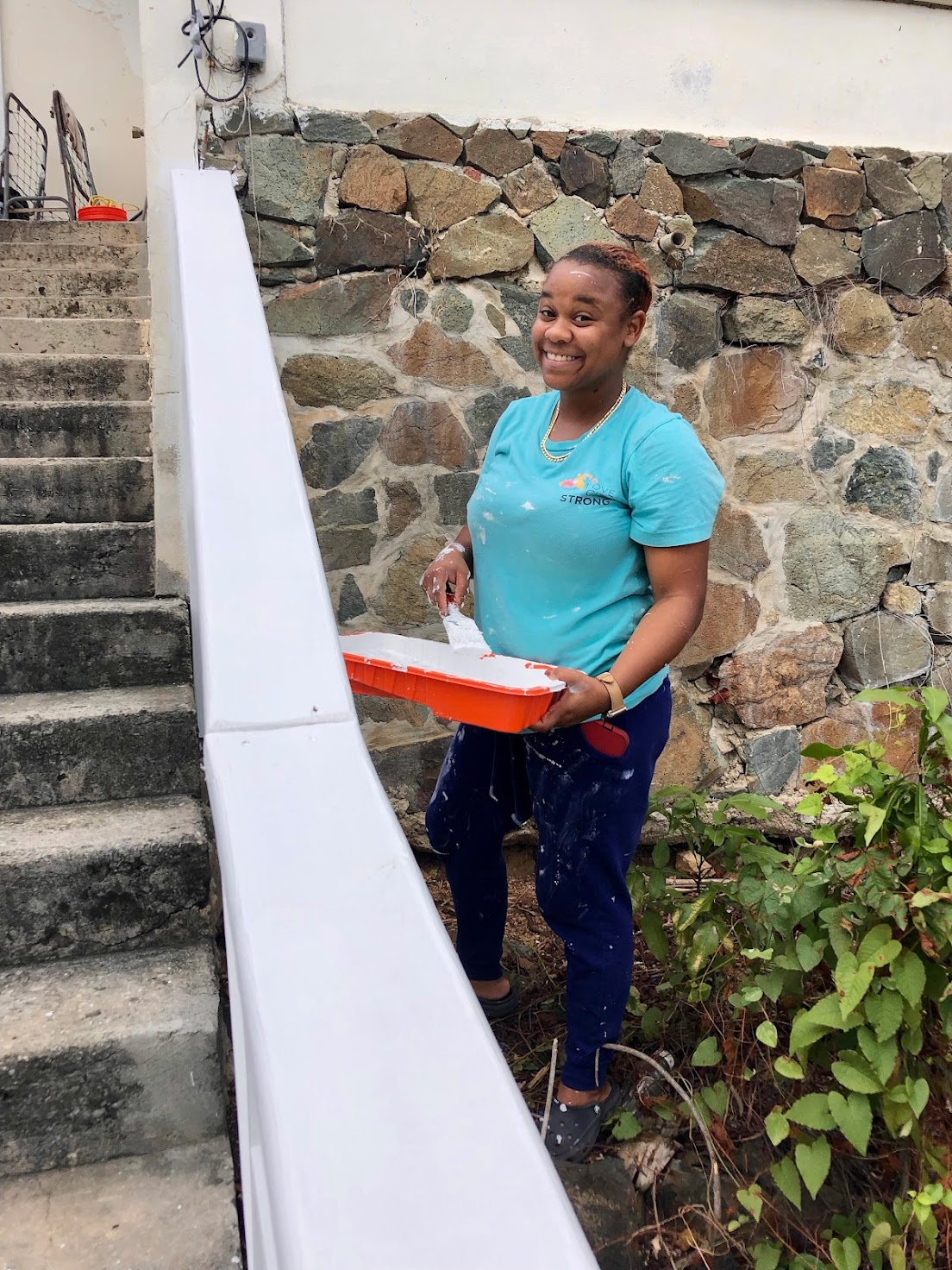

The Resilient Housing Initiative (RHI) was created in 2018 to help rebuild homes on St. John that were destroyed by Hurricanes Irma and Maria. It is now the longest running home rebuild program on the island, surpassing the existence of other federal and local assistance programs. Every home rebuilt through RHI is more disaster resistant and safer than ever thanks to the hard work of licensed Virgin Islands contractors and small businesses. To date, this program has rebuilt 36 homes across St. John.
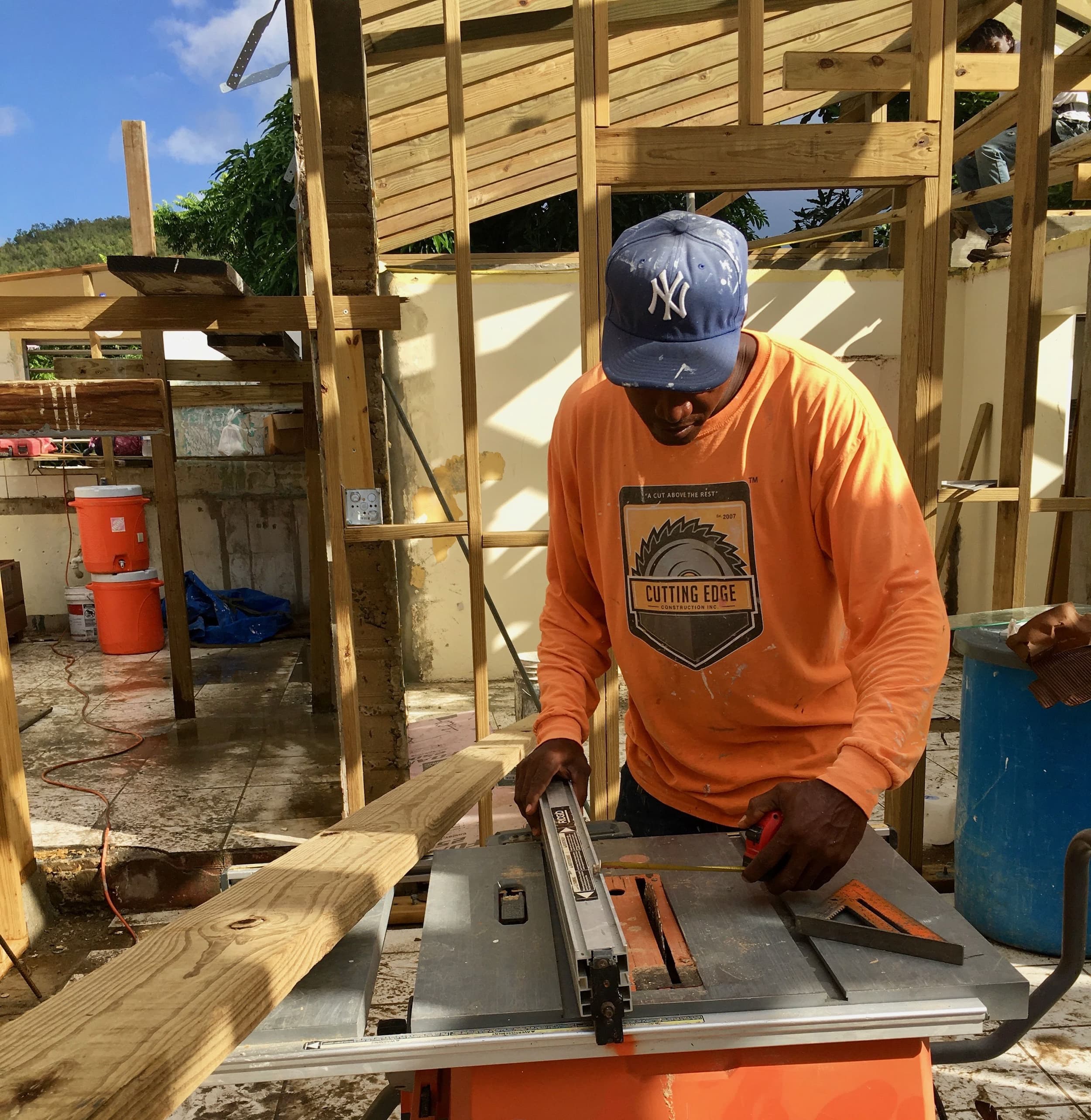
Building Back Stronger
In 2022, we are working to expand the impact of the RHI program, and adapt to the changing needs of our clients. By including smaller scopes of work within our program, we will allow for progress towards resilience across a much broader segment of the community. Additionally, with our St. John community in the midst of a severe affordable housing crisis, each home repaired and rendered more accessible alleviates pressure on the existing housing market.
All homes rebuilt through this program belong to full time residents of St. John who are members of one or more of the following groups: Seniors, families with small children and infants, and persons with a disability or a chronic health condition. Additionally, all clients have received little to no federal, private, or local financial assistance with rebuilding their home. To learn more about sponsoring a portion of this program, please see our sponsorship document.
Building Back Stronger
In 2022, we are working to expand the impact of the RHI program, and adapt to the changing needs of our clients. By including smaller scopes of work within our program, we will allow for progress towards resilience across a much broader segment of the community. Additionally, with our St. John community in the midst of a severe affordable housing crisis, each home repaired and rendered more accessible alleviates pressure on the existing housing market.

All homes rebuilt through this program belong to full time residents of St. John who are members of one or more of the following groups: Seniors, families with small children and infants, and persons with a disability or a chronic health condition. Additionally, all clients have received little to no federal, private, or local financial assistance with rebuilding their home. To learn more about sponsoring a portion of this program, please see our sponsorship document.
Disaster Preparedness
Planning for future challenges presented by disasters is our primary goal and purpose. Our Disaster Preparedness program has three components which seek to ensure that St. John is more prepared than ever for all hazards.
Planning for future challenges presented by disasters is our primary goal and purpose. Our Disaster Preparedness program has three components which seek to ensure that St. John is more prepared than ever for all hazards.
We have established 3 secure storage facilities across the island that house a variety of response and recovery supplies.
We have established a standby road clearing team, who are ready to deploy in the event of a disaster and are trained in proper equipment safety and use.
We have established a standby expansion of our Go Team, who are ready to deploy for door-to-door wellness checks and supply distribution in the event of a disaster.
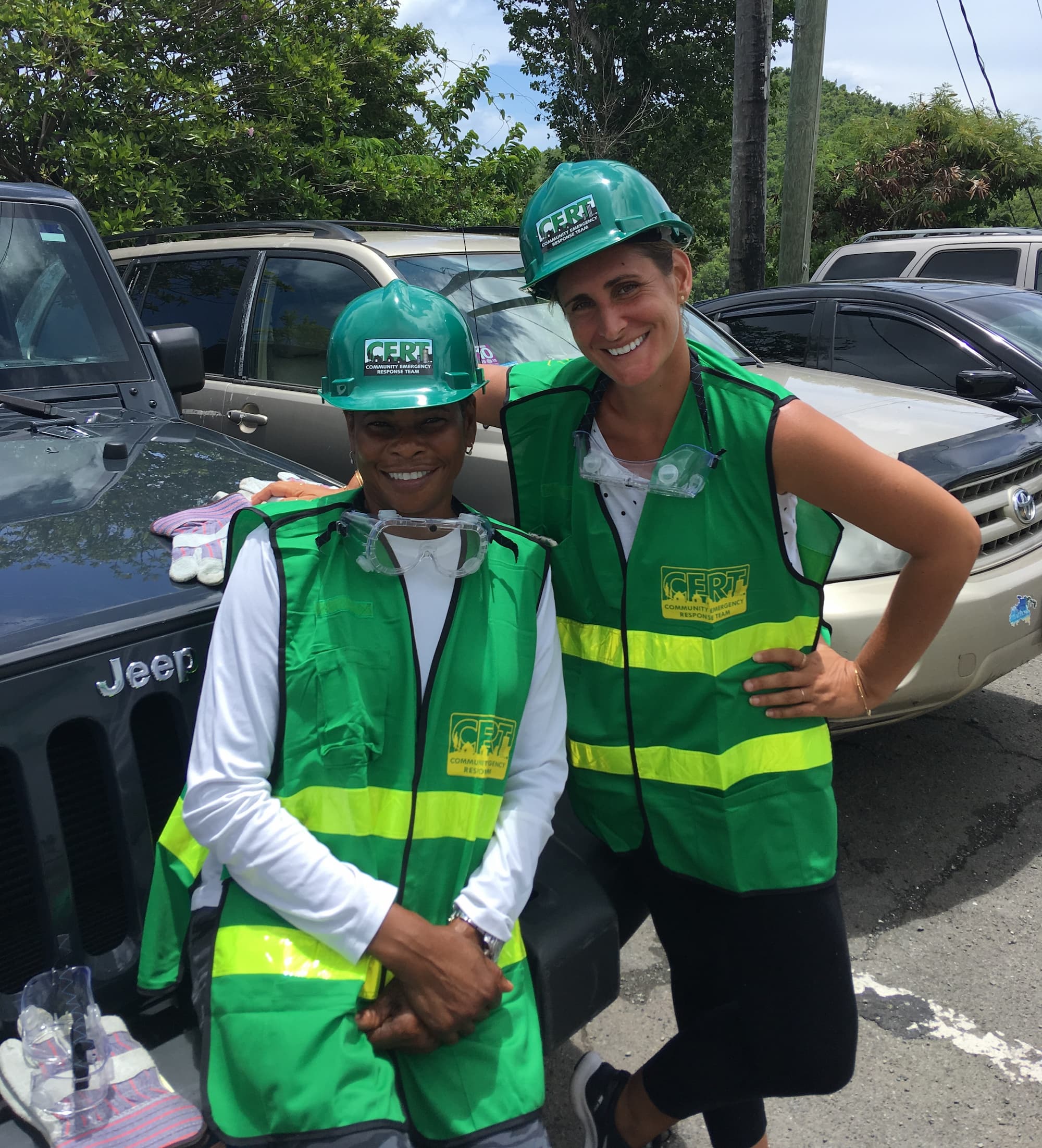
Our employees and our standby teams have received extensive training from BBC Electric, St. John Rescue, the USVI Department of Health, the Virgin Islands Public Safety-Support Foundation, FEMA, and VITEMA. We believe that regular training and professional development are key to making us more effective as first responders.
Every year, we assist the Department of Human Services and VITEMA to deliver hundreds of sandbags and blue roof sheeting to seniors and families. We also have an aggressive, annual public outreach program that involves amplifying preparedness messaging from VITEMA and FEMA via social media and making direct phone calls to seniors on St. John.
Our Go Team contacts over 200 individual households on St. John before and after every major weather event, and responds to any immediate needs that they may have to get prepared. You can read more about our responses to recent hazards, including tropical storms and the COVID-19 pandemic, by clicking here.

Our employees and our standby teams have received extensive training from BBC Electric, St. John Rescue, the USVI Department of Health, the Virgin Islands Public Safety-Support Foundation, FEMA, and VITEMA. We believe that regular training and professional development are key to making us more effective as first responders.
Every year, we assist the Department of Human Services and VITEMA to deliver hundreds of sandbags and blue roof sheeting to seniors and families. We also have an aggressive, annual public outreach program that involves amplifying preparedness messaging from VITEMA and FEMA via social media and making direct phone calls to seniors on St. John.
Our Go Team contacts over 200 individual households on St. John before and after every major weather event, and responds to any immediate needs that they may have to get prepared. You can read more about our responses to recent hazards, including tropical storms and the COVID-19 pandemic, by clicking here.
Advocacy and Project Support
In 2022, our recovery programs expanded to include project management support for federally funded Territorial programs, in sectors including housing, health, energy, and education. In keeping with our mission, experienced project managers and subject matter experts from outside the Territory will be teamed with local hires, thereby building relevant skill sets in the USVI for future disaster impacts. Through LCS, these project management teams will support the Government of the Virgin Islands (GVI) in drawing down federally obligated funds and expediting projects on St John and Territory-wide. This work is moving forward in tandem with our annual preparedness, response, and mitigation programming, focused on building community resilience and capacity for response while supporting government efforts.
The Community And Responder Emergency Support (CARES) App
In 2021, we began working with stakeholders in the USVI to make use of this data via the development of a first responder mobile app. This on and offline-functional app will act as a search engine system using the collected data and can be utilized in the event of an emergency or natural disaster. Our Community and Responder Emergency Support application (CARES) offers a solution to critical health and safety issues facing St. John’s residents, using new technology and our experience in data collection and community outreach.
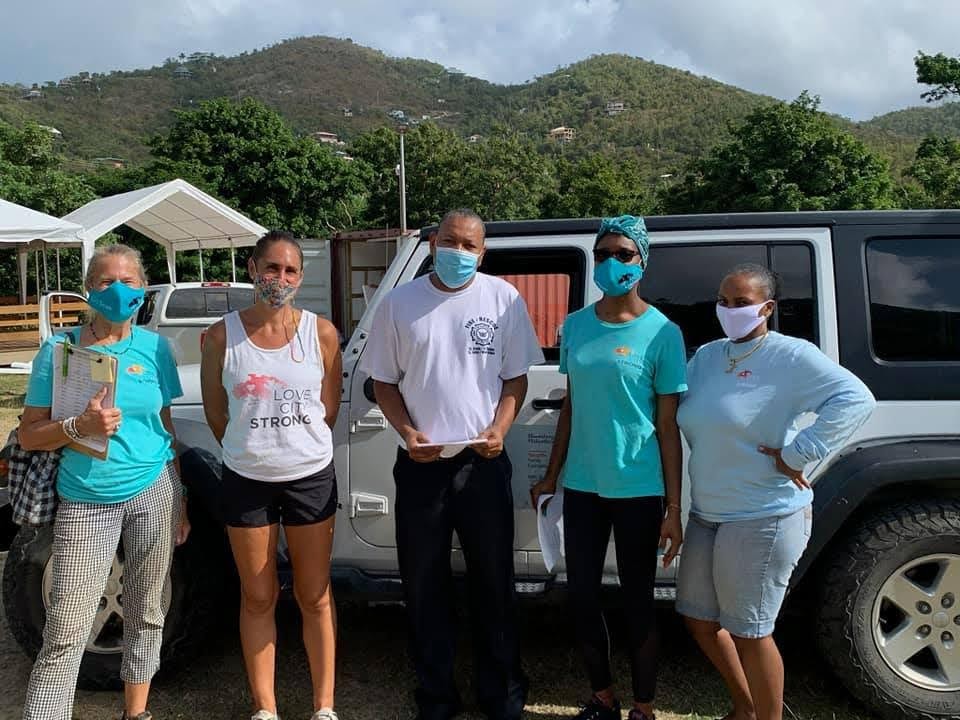

In 2022, our recovery programs expanded to include project management support for federally funded Territorial programs, in sectors including housing, health, energy, and education. In keeping with our mission, experienced project managers and subject matter experts from outside the Territory will be teamed with local hires, thereby building relevant skill sets in the USVI for future disaster impacts. Through LCS, these project management teams will support the Government of the Virgin Islands (GVI) in drawing down federally obligated funds and expediting projects on St John and Territory-wide. This work is moving forward in tandem with our annual preparedness, response, and mitigation programming, focused on building community resilience and capacity for response while supporting government efforts.
The Community And Responder Emergency Support (CARES) App
In 2021, we began working with stakeholders in the USVI to make use of this data via the development of a first responder mobile app. This on and offline-functional app will act as a search engine system using the collected data and can be utilized in the event of an emergency or natural disaster. Our Community and Responder Emergency Support application (CARES) offers a solution to critical health and safety issues facing St. John’s residents, using new technology and our experience in data collection and community outreach.
Emergency Support
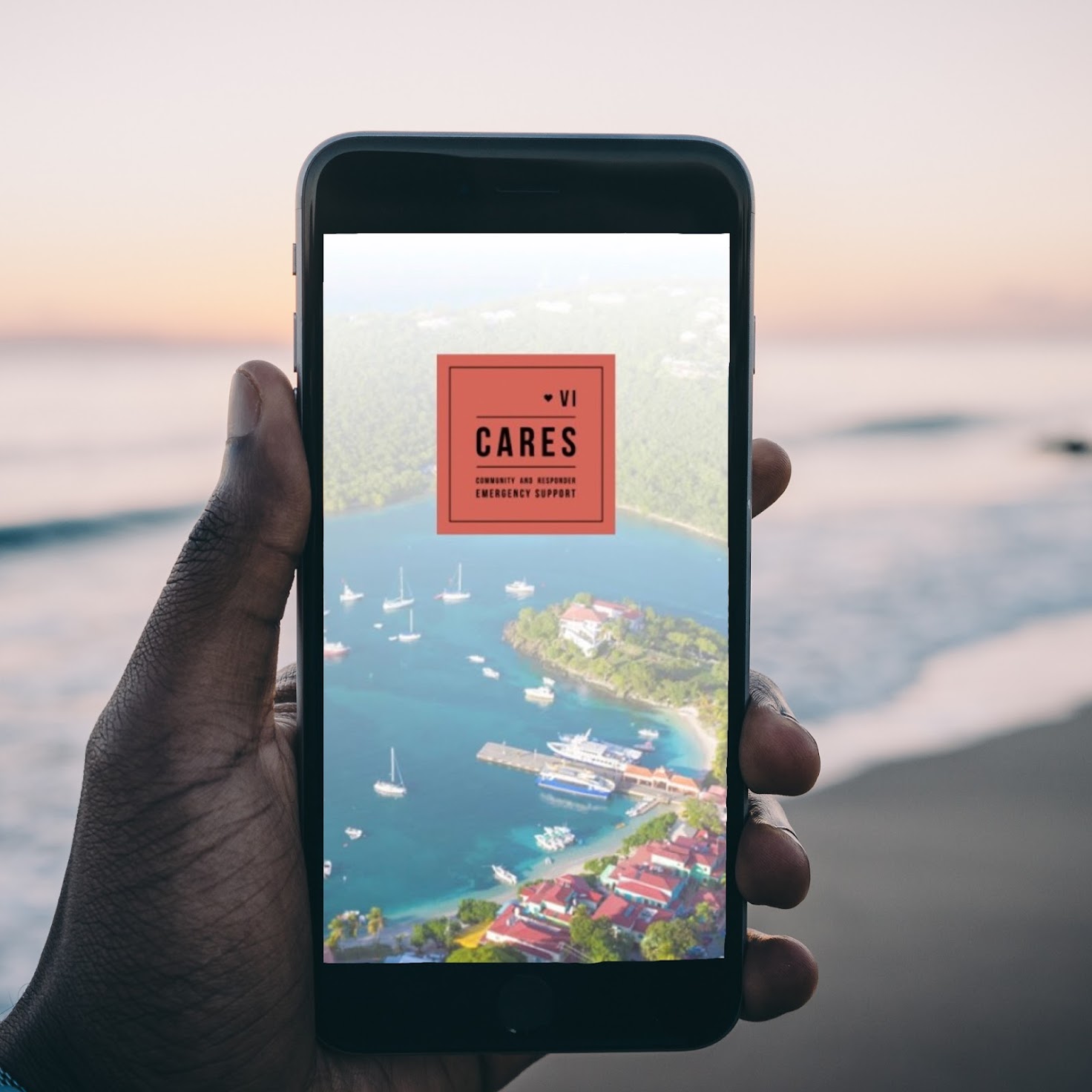
An issue that has long affected St. John is the delayed response to emergencies by the island’s hard working first responders. This is due to a variety of factors such as the island’s inherent topographical challenges; poor cell phone and data service; outdated mapping of public roads, parcels and land estates and a lack of mapping for the majority of private roads and structures.
To help connect St. John’s first responders with those in need, our Go Team has spent the last 3 years traveling across the island and going door-to-door, offering free services to residents that may make it easier for emergency workers to find them. These include providing custom address signs; easy to use, waterproof, emergency flashing lights; and File of Life cards. Our team is also collecting important data that will be used by first responders to locate residents after a natural disaster, with a special emphasis on high risk individuals such as seniors and persons with a disability or chronic health condition.

An issue that has long affected St. John is the delayed response to emergencies by the island’s hard working first responders. This is due to a variety of factors such as the island’s inherent topographical challenges; poor cell phone and data service; outdated mapping of public roads, parcels and land estates and a lack of mapping for the majority of private roads and structures.
To help connect St. John’s first responders with those in need, our Go Team has spent the last 3 years traveling across the island and going door-to-door, offering free services to residents that may make it easier for emergency workers to find them. These include providing custom address signs; easy to use, waterproof, emergency flashing lights; and File of Life cards. Our team is also collecting important data that will be used by first responders to locate residents after a natural disaster, with a special emphasis on high risk individuals such as seniors and persons with a disability or chronic health condition.
COVID-19 Response
Before the first case of COVID-19 was reported in the Virgin Islands, we had begun providing hundreds of gloves, surgical masks, Tyvek suits, hand sanitizer, antibacterial soap, cleaning supplies, and other PPE to healthcare workers, first responders, and essential workers in anticipation of the global shortage. We quickly adjusted all of our programs and work habits, and turned our focus to COVID-19 relief for the majority of 2020.
On March 14th, the first case of COVID-19 in the USVI was reported by local health officials. The territory went into its first and longest mandatory lockdown shortly thereafter. In response, we partnered with World Central Kitchen and Gifft Hill School to deliver free hot and cold meals to seniors, families with children, and individuals with a disability or chronic health condition. We worked with St. John Brewers to increase meal preparation and storage capacity, and Rocknrolla Charters for additional transportation and Spanish translation.
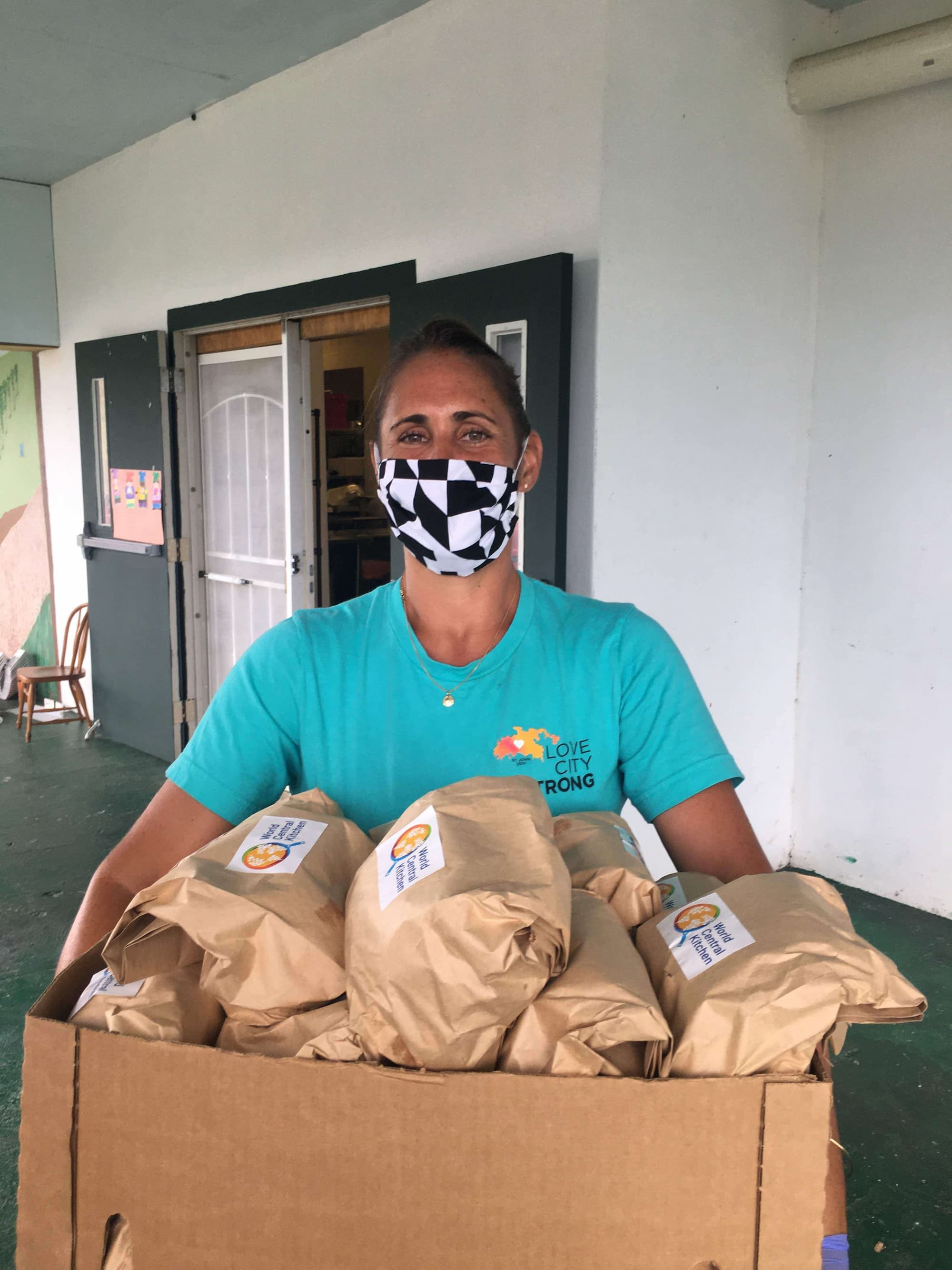

Before the first case of COVID-19 was reported in the Virgin Islands, we had begun providing hundreds of gloves, surgical masks, Tyvek suits, hand sanitizer, antibacterial soap, cleaning supplies, and other PPE to healthcare workers, first responders, and essential workers in anticipation of the global shortage. We quickly adjusted all of our programs and work habits, and turned our focus to COVID-19 relief for the majority of 2020.
On March 14th, the first case of COVID-19 in the USVI was reported by local health officials. The territory went into its first and longest mandatory lockdown shortly thereafter. In response, we partnered with World Central Kitchen and Gifft Hill School to deliver free hot and cold meals to seniors, families with children, and individuals with a disability or chronic health condition. We worked with St. John Brewers to increase meal preparation and storage capacity, and Rocknrolla Charters for additional transportation and Spanish translation.
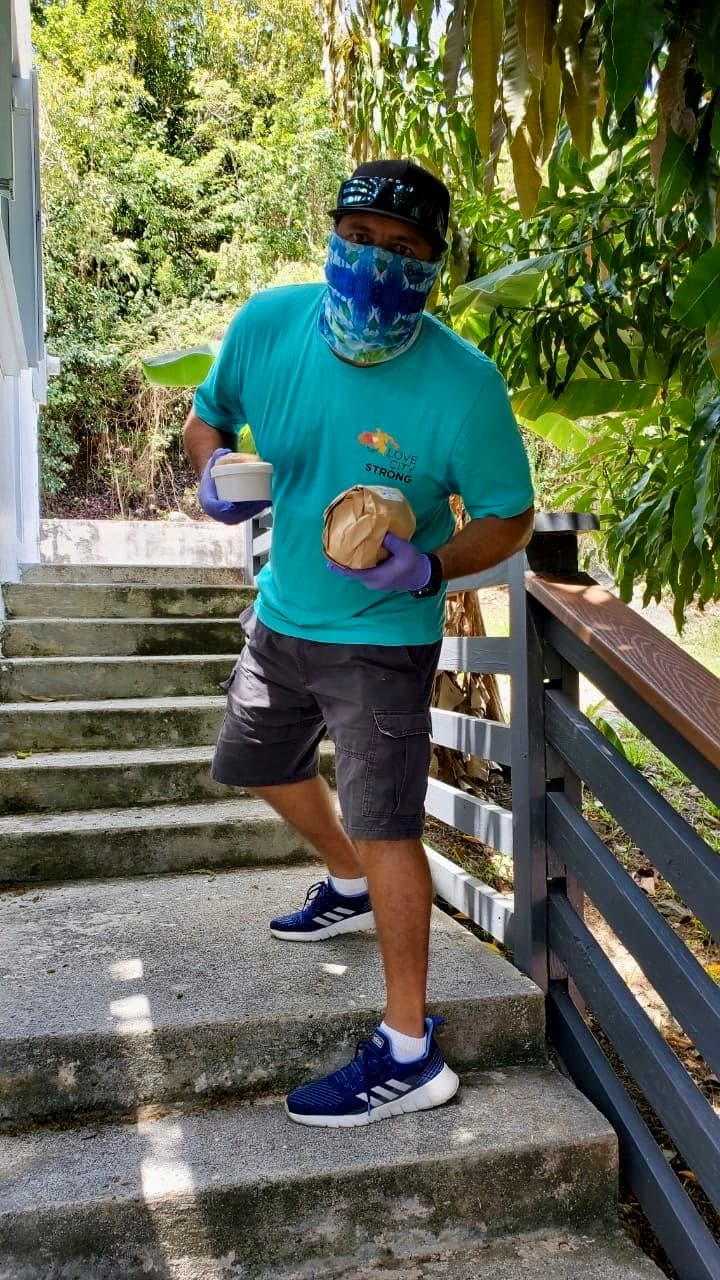
From June to December 2020, we focused on ensuring that the community and visitors could remain safe as the economy began to fully reopen. We partnered with St. John retailer Big Planet to manufacture free, reusable face masks, and set up a touch-less hand sanitizer station at the passenger ferry dock while providing additional PPE to Port Authority employees.
In 2021, we supported the Department of Health’s mission to vaccinate eligible St. John residents. Our team provided PPE, equipment, volunteers, and translators to ensure that vaccination efforts on St. John were as robust as possible. For more information on COVID-19 in the US Virgin Islands, including informational flyers and videos, visit our What to Know page.

From June to December 2020, we focused on ensuring that the community and visitors could remain safe as the economy began to fully reopen. We partnered with St. John retailer Big Planet to manufacture free, reusable face masks, and set up a touch-less hand sanitizer station at the passenger ferry dock while providing additional PPE to Port Authority employees.
In 2021, we supported the Department of Health’s mission to vaccinate eligible St. John residents. Our team provided PPE, equipment, volunteers, and translators to ensure that vaccination efforts on St. John were as robust as possible. For more information on COVID-19 in the US Virgin Islands, including informational flyers and videos, visit our What to Know page.
Water Quality
Many homes on St. John do not have access to safe, potable water directly from their cisterns, and no way to determine the water’s condition. LCS assessed this community concern through widespread data collection after the hurricanes of 2017, and responded to the need by developing our multiphase Water Quality program. In 2018 we began the first phase, aimed at testing and raising awareness of cistern water quality. Water testing was conducted for residents who, as defined by the World Health Organization (WHO), are considered high-risk for the effects of a severe waterborne illness: Seniors; pregnant women; families with young children and infants; and individuals with a disability or chronic health condition. Our team visited and tested the cistern water of over 200 homes, at no cost to the residents. Alarmingly, the vast majority of our tests showed a high presence of harmful E.Coli bacteria. Collecting this data allowed us to seek funding for long-term solutions.
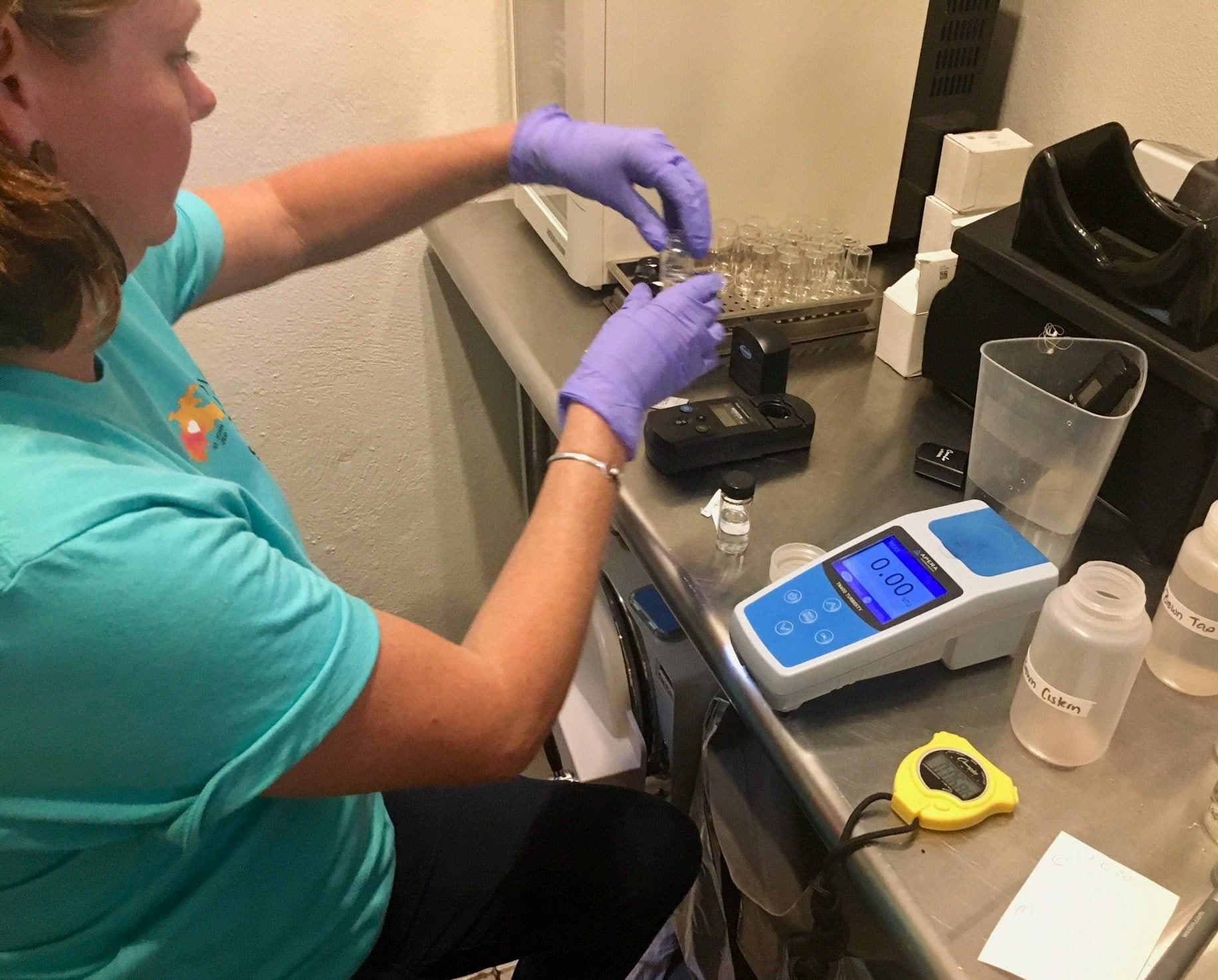

Many homes on St. John do not have access to safe, potable water directly from their cisterns, and no way to determine the water’s condition. LCS assessed this community concern through widespread data collection after the hurricanes of 2017, and responded to the need by developing our multiphase Water Quality program. In 2018 we began the first phase, aimed at testing and raising awareness of cistern water quality. Water testing was conducted for residents who, as defined by the World Health Organization (WHO), are considered high-risk for the effects of a severe waterborne illness: Seniors; pregnant women; families with young children and infants; and individuals with a disability or chronic health condition. Our team visited and tested the cistern water of over 200 homes, at no cost to the residents. Alarmingly, the vast majority of our tests showed a high presence of harmful E.Coli bacteria. Collecting this data allowed us to seek funding for long-term solutions.
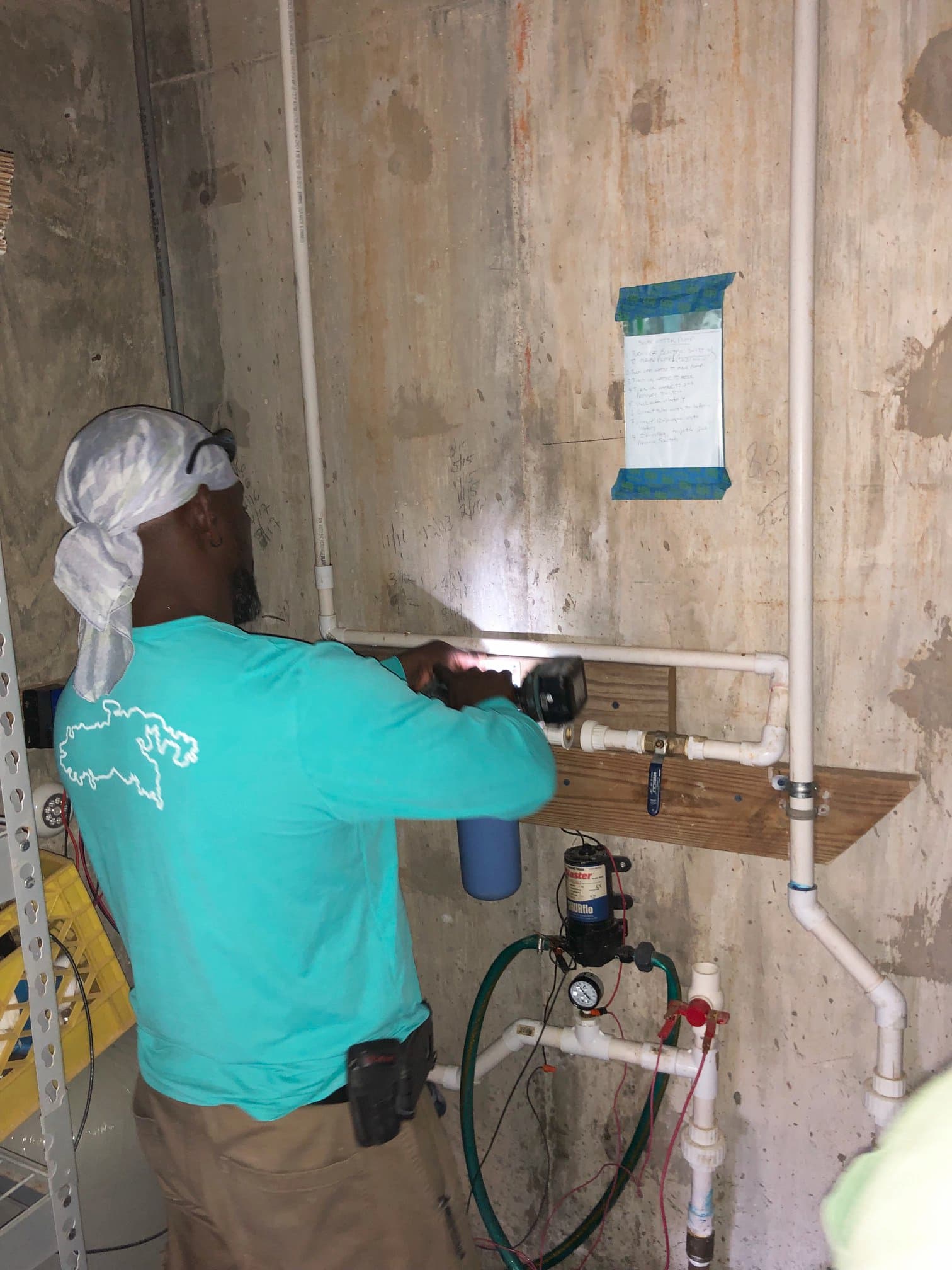
In 2019, we received a grant from the Center for Disaster Philanthropy to provide and install new, three-phase UV and carbon filtration systems on 50 residential cisterns. These cisterns belong to individuals whose test results in the first project phase continuously showed a high-risk of harmful contamination. We completed 50 installations in 2019, and an additional 20 installations in 2020 thanks to the support of our donors, who have kept this program going. This program creates long term health benefits for the high-risk individuals who are affected, and may have larger, positive economic and environmental impacts via reducing individual dependence on bottled water and reducing the strain that disposable plastic bottles place on St. John’s fragile waste management system. Licensed plumbers and electricians living on St. John have been hired to perform all of the installations, further ensuring that the recovery dollars we receive stay in the community.
Click here to learn about one of the studies we were a part of in 2019.
Our team has been continuously utilized by the CDC, EPA, and the VI Department of Health on several epidemiological studies involving cistern water and residential health, territory-wide since 2018. Our team’s expertise in water quality research as well as their knowledge of the community has led them to become a crucial component of multiple projects implemented by these agencies.

In 2019, we received a grant from the Center for Disaster Philanthropy to provide and install new, three-phase UV and carbon filtration systems on 50 residential cisterns. These cisterns belong to individuals whose test results in the first project phase continuously showed a high-risk of harmful contamination. We completed 50 installations in 2019, and an additional 20 installations in 2020 thanks to the support of our donors, who have kept this program going. This program creates long term health benefits for the high-risk individuals who are affected, and may have larger, positive economic and environmental impacts via reducing individual dependence on bottled water and reducing the strain that disposable plastic bottles place on St. John’s fragile waste management system. Licensed plumbers and electricians living on St. John have been hired to perform all of the installations, further ensuring that the recovery dollars we receive stay in the community.
Click here to learn about one of the studies we were a part of in 2019.
Our team has been continuously utilized by the CDC, EPA, and the VI Department of Health on several epidemiological studies involving cistern water and residential health, territory-wide since 2018. Our team’s expertise in water quality research as well as their knowledge of the community has led them to become a crucial component of multiple projects implemented by these agencies.
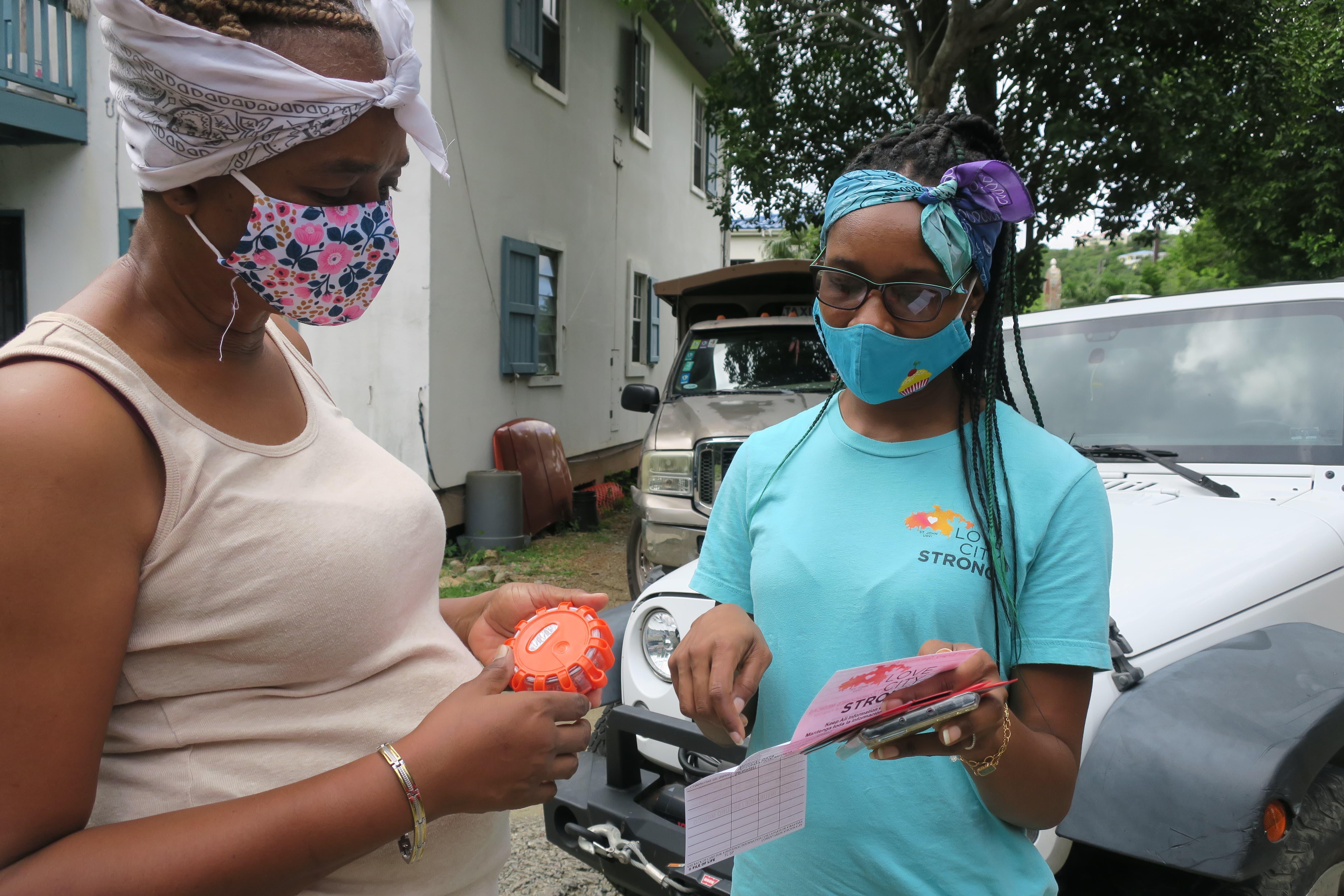
Donate
When it comes to supporting the preparedness and resilience of the St. John community, no donation is too small and all contributions are greatly appreciated. We can continue to do our work with your support.
Donate nowDonate
When it comes to supporting the preparedness and resilience of the St. John community, no donation is too small and all contributions are greatly appreciated. We can continue to do our work with your support.

Show your support
Support Love City Strong by purchasing exclusive merchandise! The only place where 100% of the profits benefit our organization.
Shop nowShow your support
Support Love City Strong by purchasing exclusive merchandise! The only place where 100% of the profits benefit our organization.
Shop now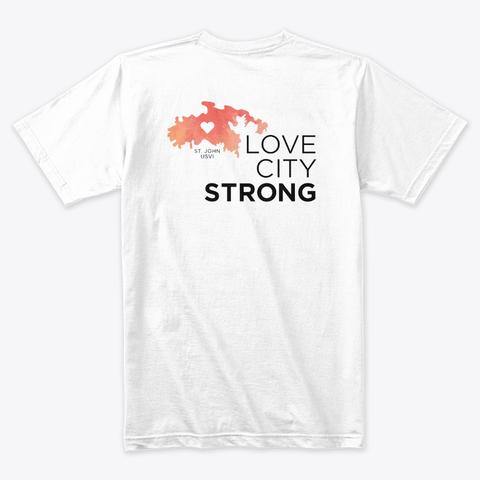
Awards and Certifications
